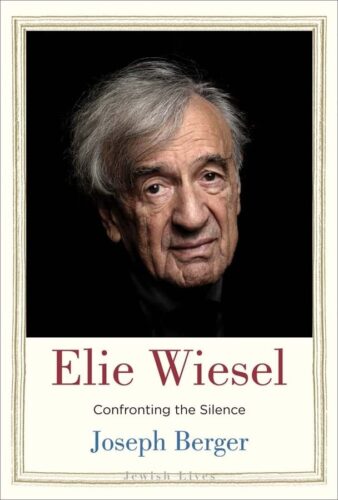
As an orphaned survivor and witness to Auschwitz, Elie Wiesel (1928–2016) became a torchbearer for victims and survivors of the Holocaust at a time when the world preferred to forget. How did this frail, soft-spoken man from a small village in the Carpathians become such an influential presence on the world stage? Using Wiesel’s writings and interviews with his family, close friends, scholars, and critics, Joseph Berger presents Wiesel as both revered Nobel laureate and man of complex psychological texture and contradictions. Berger explores Wiesel’s Hasidic childhood in Sighet, his postwar years as a teenage orphan in France, his transformation into a Parisian intellectual, his fumbling attempts at romance, his hungry years scraping together a living in America as a working journalist, his emergence as a spokesperson for Holocaust survivors, and his difficult final years. Through this fully realized portrait, we see how this teenage survivor from a Hasidic family became the eloquent embodiment of Holocaust remembrance and of forceful opposition to indifference.
“A necessary and moving biography of a-once-in-a-generation historic figure and irreplaceable moral teacher.”—Cynthia Ozick, author of Antiquities and Other Stories
“Joseph Berger has performed a small miracle in offering us this moving, meticulously researched, judicious, and learned biography of Elie Wiesel who willed himself to transcend personal tragedy and bear witness in the hope that humanity might learn from the horrors of the past.”— David Nasaw, author of The Last Million: Europe’s Displaced Persons from World War to Cold War.
To read a review by By Julia M. Klein, click here.
